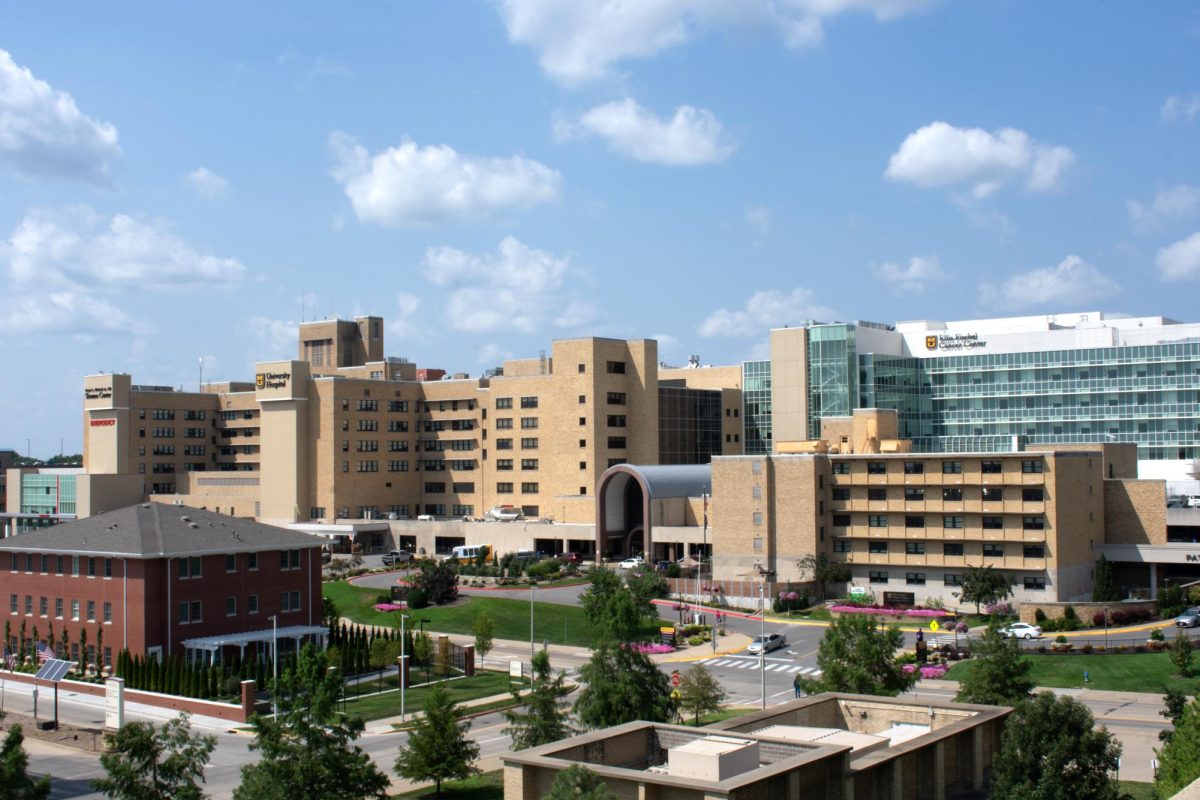Politicians from around the state of Missouri have criticized MU in the wake of race-based protests on campus last fall, but ahead of Tuesday’s election, many candidates have spoken out in favor of higher education funding.
Chris Koster and Eric Greitens are the Democratic and Republican candidates for governor, respectively, and both have expressed their support of education in Missouri.
“State funding for higher education, which is among the smartest investments our state can make” has dropped by over 35 percent since 2001, according to Koster’s campaign website. In the past, Koster has also spoken about the potential harm that legislative funding cuts pose.
The information provided by Greitens’ campaign regarding education is vague. He said he supports education, but he hasn’t detailed his specific plans for higher education funding.
“We’ve got far too much money right now that’s been spent on administration and bureaucracy instead of being spent on world-class research, outstanding teaching and making sure that every graduate in the state of Missouri is able to get a quality job when they graduate from college,” Greitens told the Associated Press in October. “That’s why I think it’s essential that we build a plan to make sure that we’re going to be able to offer that world-class education in the state of Missouri, and then we’ll look at every mechanism to make sure that we’re funding that appropriately.”
Russ Carnahan, the Democratic candidate for lieutenant governor, holds a similar view to Koster, specifically that “restoring full funding to our public universities” will benefit Missourians, according to Carnahan’s campaign website.
While Mike Parson, the Republican candidate for lieutenant governor and a current state senator from Jackson County, has said that “legislature should be careful about punishing universities through budget cuts,” he did vote for House Bill 2003, which cuts funding to the UM System by nearly $4 million.
In the state House of Representatives, Reps. Chuck Bayse, R-Rocheport, Kip Kendrick, D-Columbia, Caleb Rowden, R-Columbia, and Stephen Webber, D-Columbia, each voted against HB 2003.
Rowden proposed an amendment to the bill, which would have increased performance funding to the UM System by 2 percent. Ultimately, the amendment did not pass.
In fall 2015, protests against incidents of racism on MU’s campus, and the administration’s response to those protests, resulted in national news coverage of the university. Following negative media portrayals of the university, feedback came not only from community members, but also from those holding political offices.
“The handling of the entire incident screams of a lack of leadership,” Rep. Rocky Miller, R-Lake Ozark, told the St. Louis Post-Dispatch in March. “We need real change and we need it now.”
Miller was just one of numerous individuals who pushed to severely cut funding for MU following the incidents.
“I have watched for seven months as [Mizzou] was dragged through the muck in the national news and I think a large part of it was UM’s doing,” Rep. Jay Barnes, R-Jefferson City, told the Post-Dispatch in March.
In retaliation against the events that took place last fall, a group of Missouri legislators imposed budget cuts on MU in spring of 2016. The specific bill that diminishes funding for the university, HB 2003, doesn’t mention cuts, but the numbers in the bill are lower than they had been in past years.
The initial version of the bill that passed in the House would have cut more than $7 million from the UM System and an additional $1 million from MU. The final version of the bill instead [cuts $3.8 million](https://www.themaneater.com/stories/2016/4/21/compromise-legislators-limit-cuts-um-system-and-mu/) from just the UM System.
These cuts specifically target the UM System president’s office and Board of Curators.
Interim UM System President Mike Middleton said that “much work remains to restore confidence and trust in our leadership, which we will continue to do by being completely transparent, accountable and fiscally responsible in our actions” when the budget was passed.
While MU was spared the $1 million cut, other factors, such as enrollment decline, have led to a budget shortfall.
The governor, lieutenant governor, state senators and state representatives all have influence on funding for higher education.
State senators and state representatives amend and vote on budgets. Once a budget bill is passed in both houses, the governor can either veto or sign the bill into law. The lieutenant governor presides as president of the Senate, votes if there is a tie, and serves as governor if the governor is absent, disabled, or removed from office.
This election cycle, each of these positions are on the ballot.
Kendrick and Bayse are running for re-election in districts 45 and 47. District 45 covers north Columbia and much of the MU campus. District 47 includes the west edges of Columbia and the northwest portion of Boone County.
Rowden and Webber, who currently represent districts 44 and 46, respectively, are now running against each other for state senator of district 19, which includes Boone and Cooper counties. District 46 includes the east edge of Columbia and the northeast section of Boone County. District 44 covers the south end of Columbia and parts of MU.
Both Democratic and Republican candidates running for office to represent the Columbia area in the Missouri General Assembly have spoken on the economic importance of MU to the community and the need to support the university.
“From academics to research to athletics…MIZZOU is something special,” according to Rowden’s campaign website. “We must ensure that it has the resources it needs to not only maintain that status, but to grow and develop as a national leader in innovation and education.”
_Edited by Claire Mitzel | [email protected]_













